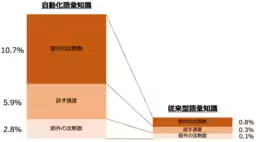

Enhancing Fluency in English Through Sophisticated Vocabulary Knowledge and Its Applications
Enhancing Fluency in English Through Sophisticated Vocabulary Knowledge and Its Applications
In recent studies conducted by researchers from Waseda University and other institutions, a clear connection has been established between vocabulary knowledge and fluently speaking English as a second language (L2). The research revealed that for non-native English speakers, being able to quickly and accurately understand word meanings within context—rather than merely memorizing isolated definitions—plays a pivotal role in achieving conversational fluency. This article explores the importance of advancing vocabulary knowledge and presents findings from recent studies that underscore its impact on language acquisition and usage.
The Importance of Contextual Vocabulary Knowledge
Fluency in English relies heavily on automatic lexical retrieval means that language learners must be able to access word meanings seamlessly during conversation. The traditional approach of linear vocabulary learning—understanding single-word definitions like “give” as “to provide”—is not sufficient for fluent speech production. Instead, learners benefit significantly from being able to recognize and deploy vocabulary within appropriate contexts and combinations of phrases. This concept of “automatized vocabulary knowledge” is distinct from basic vocabulary knowledge and facilitates the learner's ability to speak without hesitation.
The research findings revealed that there is a substantial difference in fluency metrics—in particular, the occurrence of pauses within phrases can indicate the level of language knowledge and processing speed. The researchers demonstrated that learners with a refined and automatized sense of vocabulary can articulate their thoughts more swiftly and with fewer interruptions compared to those who rely on basic vocabulary knowledge.
Research Methodology and Findings
In the conducted study, a sample of 210 Japanese university students learning English as their second language underwent two types of vocabulary tests, cognitive ability tests, and two speaking tasks. The study aimed to examine the relationship between automatized vocabulary knowledge and listening abilities, utilizing a vocabulary knowledge test format that aligned with previous research.
One of the tests used traditional multiple-choice questions where students listened to English words and chose the correct Japanese meaning. The other test assessed automatized vocabulary knowledge by asking participants to judge the appropriateness of sentences containing specific vocabulary. Through these two types of assessments, significant statistics were derived that demonstrated a clear distinction in how automatized vocabulary knowledge correlates with fluency.
It was found that automatized vocabulary produced a meaningful relationship with fluency measures, indicating enhanced verbal speed and fewer internal pauses. Traditional methods, on the other hand, yielded weak correlations, suggesting that they may not adequately prepare students for real-world conversations.
The Implications for Language Instruction
The implications of these findings are substantial for language education. Emphasizing the development of vocabulary knowledge that extends beyond simple definitions to being able to employ words fluidly in various contexts is vital. Such a focus enhances the ability to communicate effectively and could improve learners' overall language proficiency, which may promote smoother conversations.
Furthermore, this research proposes that auditory learning—consuming language through listening rather than reading—can significantly enhance vocabulary retention and application. As observed, many educational environments prioritize text-based vocabulary acquisition; however, integrating more auditory elements could improve sound recognition and context usage which are essential for language fluency.
Future Research Directions
Future studies should explore various traditional vocabulary measurement methods, including recalling words in active use rather than solely recognition tasks. By broadening research methodologies to include comprehensive assessments of grammar processing speeds along with vocabulary automatization, a clearer picture of how automatic vocabulary knowledge contributes to fluency can be developed. Language educators may then derive improved pedagogical strategies that foster a more holistic understanding of vocabulary in the context of fluent speech production.
Researchers' Insights
This study unveils the potential of an integrative approach to understanding vocabulary acquisition as it relates to fluency in a second language. The ongoing exploration into how lexical knowledge is automatized can yield valuable insights into educational practices aimed at elevating second language learning outcomes. As the connection between vocabulary knowledge and effective language use continues to evolve, future researchers will strive to illuminate effective teaching strategies that best nurture language proficiency.
In conclusion, the pathway to fluent English is paved not merely through rote memorization, but through cultivating a nuanced and contextually rich understanding of vocabulary that ultimately translates into effective communication skills.



Topics People & Culture)










【About Using Articles】
You can freely use the title and article content by linking to the page where the article is posted.
※ Images cannot be used.
【About Links】
Links are free to use.